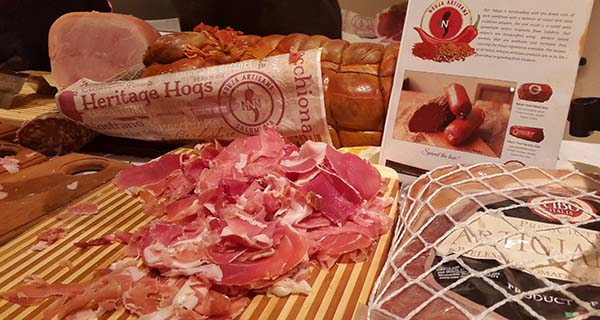
A selected group of 25 restaurants in the US have been awarded with the high quality trademark “Ospitalità Italiana” by the Italy-America Chamber of Commerce (IACC) for offering authentic Italian recipes and hospitality to a growing number of American consumers looking for food as a cultural experience.
THE MAIN SELECTION CRITERIA – Launched five years ago, the trademark “Ospitalità Italiana: The Authentic Italian Table” has so far been assigned to around 300 restaurants in the United States and efforts are under way to award a bigger number of eateries across the country. The main selection criteria are the use of PDO-PGI certified products, of 100% Italian made extra virgin olive oil, a large offer of Italian wines, and the protection of Italian language – from the menus to having at least one server speaking Italian. “We are very satisfied with the work we have done. It’s a work in progress. When we started five years ago, some did not believe in it. But we were right,” IACC secretary general, Federico Tozzi, told ItalianFood.net at the annual awarding event held in New York, where restaurants offered regional recipes with specialty ingredients, from pasta with “Conca d’Oro” tomatoes, Sant’Angelo extra virgin olive oil and grated Montasio cheese, to freshly fried dough puffs (“gnocco fritto”) with prosciutto di Parma.
SENTINELS OF QUALITY – Of the restaurants awarded by IACC this year, 24 are based in and around New York and one in Maryland, outside Washington D.C. The average price for a full meal ranges from 70 to 104 dollars per person. New York is the capital of Italian food in the US, which justifies the large presence of restaurants from the area. But the IACC aims to expand the certification to other Italian eateries across the US, which become “sentinels” of “Made in Italy”, by promoting and respecting the standards required by the global RIM certification (Italian Restaurants around the world).
GLOBAL MARKET CHALLENGE – However, offering authentic products is not enough to be successful in a global market where consumers dictate trends, and where “niche” producers need to educate customers, IACC president Alberto Milani said. “The United States is not a niche market, it’s a market of volumes,” said Milani. “We have made giant steps in terms of production, but we don’t know how to sell our products. In a global economy, quality is important but it’s not the only ingredient,” Milani said. The certified restaurants include among their clients opinion makers, who share the effort of spreading the culture of authentic food. “When customers come to our restaurant, we try to teach them how real Italian food is made. For example, if we serve a dish of pasta, we tell the history behind that pasta,” said chef German Rizzo, from restaurant Vite Vinosteria, in Astoria, New York.
